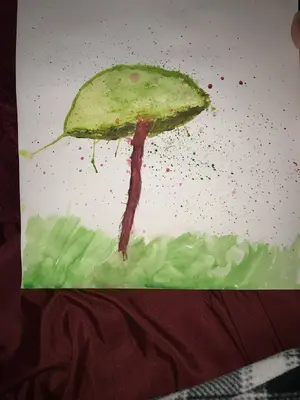Not sure I can offer anything of use but I will tell you of my experiences with teaching myself to put lines on paper that please me. That is what it boils down to in the most concrete way. It matters not what others think as long as it makes you feel good when you look at it.
The other thing you need to cultivate is blocking your own expectations and judgements. Those can inhibit as well as create within you the thought that you will never be any good at it. There is a certain confidence in your abilities that you must develop over time. Here is my own path to what I prefer to look at as collective doodling (you can see examples of what I mean in the thread Autistic Doodler over in the Visual arts forum on this site).
I was never all that interested in drawing early on. I had one or two semesters of mechanical drawing (i.e. drafting), but that was it until I was working a job in Amsterdam when I was 28. There I had the good fortune to see great works of art up close (Rembrandts, Van Goghs, and others) that ignited something in me. Photo reproductions of the paintings that I saw do not have the same emotional impact. Van Gogh's pen and ink sketches really ignited my interest in that form of drawing.
When I returned to the states, I went out and bought myself a sketch pad and started experimenting, slowly teaching myself by just letting my mind guide the pen, not trying to force anything. I would devote spare time to this and found it relaxing. The relaxing part is key; dropping your expectations and not trying to force things in a direction you are not yet ready to explore.
It took me years to gain a certain amount of control of line and form. That comes easily to some, but anyone can teach themselves to draw (I found Drawing on the Right Side of the Brain very useful in helping me remove mental blocks). It was quite a while before I was able to please myself even though I received compliments on some things that I found less than pleasing to my eye.
My media has always been pen and ink on art board. I draw through a process of accretion (many intricate but unique doodles that at there best fit together in interesting ways, mindscapes if you will). It has always been about offering something that can intrigue, evoke, or otherwise offer something that is different to everyone who views it. Do not let your own expectations of what art is, or should be, inhibit you.
Build confidence in yourself slowly by experimenting. What is it you are looking to do with it? If you can evoke a feeling in yourself when looking at something you draw, then you will most likely evoke a response in others as well. Do not be timid in showing something you like to others for feedback and then do not let any comments pro or con affect you too much. For me it is always been about satisfying myself. Even the recognized greats of the art world painted over canvases that were, for them, failed exercises.
If you are like me and not born with a built in hand-eye coordination that gives one an edge, it is practice, practice, practice. Connect to your feelings and let them express themselves in what you draw then build on that.
Drawing for me is relaxing and allows me to tune the world out. One of my doodles can take me months and in the end may work or be an utter failure in my eyes, but it is all useful as it improves one's control of line and may ignite ideas that take one to another level. Time is not an enemy and looking at what you draw over time will help improve your sense of perspective and improve your control.
Sorry for my somewhat impressionistic response. It all comes down to you connecting with your inner artist and observer. Let your emotions take control and guide your mind. Try not to be too judgmental of the results. Drawing, for me, relieves stress and leads to some interesting results on occasion.
All the best to you and your pursuits.

